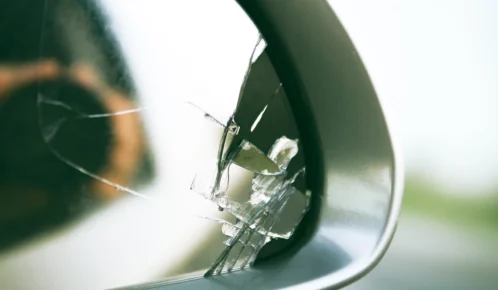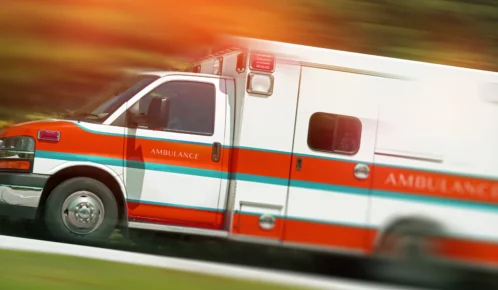Table of Contents
You can sue a nurse for medical malpractice if the nurse failed to fulfill the appropriate standard of care and that failure harmed you. Nursing malpractice usually occurs when a nurse fails to take the right immediate steps in the event of an emergency. It can also happen when a nurse injures a patient with medical equipment or administers medication incorrectly. In addition to the nurse, the hospital and the attending doctor can be potentially liable in medical malpractice cases involving negligent nurses.
Getting a favorable outcome in a nursing malpractice case is an arduous task. The reason is that these cases typically have a relatively higher burden of proof than other injury-related cases. New rules, studies, and precedents may also affect these cases. As such, you are likelier to get a better outcome in your case when working with a medical malpractice lawyer with a reputation for winning cases like yours than pursuing the claim alone.
What Is Considered Nursing Malpractice?
Nursing malpractice constitutes a breach of professional duty of care by a nurse that injures or harms a patient. It usually happens when a nurse does not offer proper care or deviates from the established standard of care for the nursing profession, subjecting patients to otherwise avoidable harm or even death. If you lost a loved one due to the negligence of medical staff, it’s important to know how to file a wrongful death lawsuit for medical malpractice.
Nursing malpractice can occur in the following most common situations:
Inappropriate Medication Administration
Errors during medication administration are quite common among nurses. In fact, medication mistakes happen at a rate of five of every 100 medication administrations. These errors occur when a nurse gives medication to a patient that was meant for another patient or gives an inaccurate dosage. The outcome is injury or harm to the affected patient.
A medical condition or injury that keeps on worsening even after receiving medication could be a sign of medical malpractice. Seek a second opinion from another medical provider or hospital if this situation applies to you. Doing that might help you determine whether you received the appropriate medication in the correct dosage.
Failure to Consistently Monitor the Progress of a Patient
When a nurse does not pay attention to a patient’s condition by constantly monitoring his or her essential signs or symptoms, it can lead to delayed diagnosis or treatment. The outcome is injury or even the death of the patient.
Improper Documentation of a Patient’s Condition

This happens when a nurse does not accurately capture a patient’s signs, symptoms, or medications administered, leading to delayed diagnosis or treatment. The patient suffers harm and might even die due to this type of professional negligence.
Failure to Detect and Communicate Changes in a Patient’s Condition
Nurses have a professional duty to detect and notify attending doctors or other responsible healthcare professionals of changes in the progress of a patient. These changes include the emergence of new symptoms and the worsening of the patient’s condition. Failure to recognize and communicate these changes on time can cause unnecessary diagnostic or treatment delays, endangering the health and life of the affected patient.
Improper Wound Cleaning and Dressing
A wound that develops a new infection or continues worsening could be a sign of negligence on the part of the attending nurse. The healthcare professional might have failed to clean and dress the wound appropriately.
Failure to Comply With the Attending Doctor’s Instructions
A nurse may sometimes ignore or fail to comply with the doctor’s orders by delaying medication administration, failing to perform a procedure as instructed, or failing to notify the attending doctor of changes in the patient’s progress. This kind of nursing negligence causes delays in diagnosis or treatment, which further harms the patient.
Who Is Liable for Nursing Malpractice?
A Nurse
Nurses are expected to satisfy a specific standard of care. A nurse has a legal duty to provide care similarly to how another trained nurse within the same nursing community under a similar situation would. You can sue a nurse for medical malpractice if you get injured due to the nurse’s actions (or inaction) that depart from the established standard of care.
The Hospital
Hospitals are often named defendants in nursing malpractice claims or lawsuits, as they are employers of the at fault nurses. A hospital may be liable for nursing malpractice if the nurse was working for the hospital at the time of the incident, the nurse was performing a job task when the patient got injured, and the nurse was not under the supervision of an independent doctor.
The Attending Doctor
An attending doctor could be liable for nursing malpractice if the doctor was supervising the negligent nurse when the patient got injured. A nurse is considered to be under the control of the attending doctor if the doctor was inside the hospital or medical facility or had the power to stop the nurse’s negligence.
An example is when a nurse administers an excessive dosage of medication to a patient during a medical procedure and harms the patient as a result. The doctor carrying out the medical procedure could be responsible for the patient’s injuries, as the doctor was physically present when the nurse administered the incorrect dosage of the medication and was in charge of the entire medical procedure.
Suing a Nurse for Medical Malpractice
Hiring a lawyer who knows how to sue for medical malpractice is the first and most crucial step in suing a nurse for medical malpractice. Most lawyers offer initial consultations at no cost. You can use this offer to vet several lawyers and narrow your search to one lawyer who perfectly fits your situation.
The initial consult also enables you to discuss the facts of your case with a lawyer. The lawyer can then help you determine if you have a legal basis to sue a nurse or any other healthcare professional involved in your treatment.
Your lawyer will work closely with you throughout every step of pursuing compensation from the liable nurse, from filing a claim, and proving medical malpractice to negotiating with insurance companies and representing your best interests at trial.



